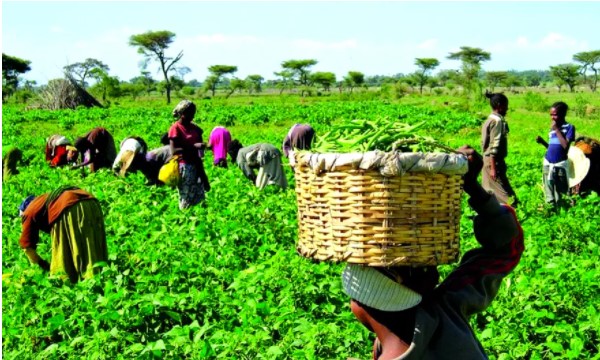AFAN Targets 1 Million Farmers, 4 Million Metric Tones Of Food In Niger

Critical stakeholders in the rice processing sub-sector have appealed to the federal government to save their businesses from collapse.
They warned that unless the federal government promptly partnered with them, hunger and food scarcity would get worse in the country in 2025.
Read Also: NNPP Stakehokders Pass No Confidence Vote on Kano State Governor
In a chat with reporters in Abuja yesterday, an executive member of the Rice Processors Association of Nigeria (RIPAN), Mohammed Abba Liman, said “the government needs to provide serviceable loans to real and identifiable rice processors in each state of the federation” and declared that “it is not in the interest of the federal government to encourage the importation of rice as it poses a big risk to the multi-billion naira investments in rice production by local rice processors.”
Liman said the importation of rice amounts to job exportation to the countries exporting rice to Nigeria and “job loss to our country.”
He stressed the need for the federal government “to interface with RIPAN members and form a strong synergy with other critical stakeholders if it wants to tackle the food crisis, if not, next year, the situation might be worse than what we are currently experiencing.
“What rice processors need is a well-structured loan scheme accessible to every registered and recognised rice processor in every state of the federation and not the type of politicised Anchor Borrowers Scheme where both real rice processors and ghost farmers took loans for wrong reasons.
“Don’t forget too that Nigerians prefer the consumption of locally processed and produced rice as it is healthier than the imported rice which contains toxic preservative chemicals that are dangerous to health”, he said.
Liman also added that “the security agencies such as the military, Department of State Services (DSS), the police and civil defence should provide adequate security on the farms to prevent herders and criminal elements from interfering with the targeted objective of the scheme, just like the Special Task Force established by the Federal Ministry of Solid Mineral Development.”
The RIPAN executive member continued, “all the farms should be well secured by security agents. This will enable us to cultivate all season rice farming using an irrigation system and dry farming season under an effective supervision and monitoring.
“We can assure Mr. President that if this suggestion is well considered and implemented, prices can be well regulated and the price of one bag of rice can drop drastically to between N45,000, N40,000 or even less.
“Under a well-regulated and supervised scheme, RIPAN and its members can feed the entire country and food crisis will be over and 2027 re-election campaign for Mr. President will become a work over because if he conquers hunger for Nigerians, in addition to the proactive reforms of his government, he will have a smooth sail.
“This can also further reduce the pressure on the Naira-Dollar exchange rate since we are producing locally and not importing,” he said.
The national president of RIPAN, Mohammed Maifata, said Nigeria has over 100 rice mills with an installed capacity to process over 6 million metric tons of paddy, a volume that is expected to increase to 7.5 million metric tonnes between 2023 and 2024 as more projects come on board.
According to RIPAN, in order to keep rice mills functional, a 2.7 million metric tonnes of paddy is required as the current area under paddy cultivation is 1.6 million hectares.
Liman therefore said “it is a call for an urgent action. Let the federal government call for a meeting of critical stakeholders involving rice processors, Federal Ministry of Agriculture, Central Bank of Nigeria, heads of security agencies, and others to work out a modality for supporting Mr. President’s efforts at boosting rice processing and by implication, food security in the country.
This he said was so “important and urgent because we are fast approaching the raining and farming season as it will enable rice processors to make adequate preparation for the farming season.”





